3.6: Irregular –ER and –IR verbs
- Page ID
- 44543
When verbs are “irregular,” it means that they do not conjugate following the usual pattern. Here are some extremely common ones:
Hacer significa ________ o ________
Salir significa ________ o ________
+ a + infinitivo ________
Ver significa ________
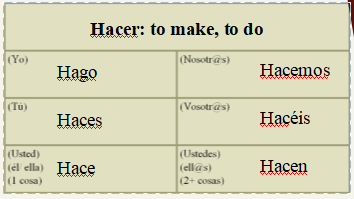
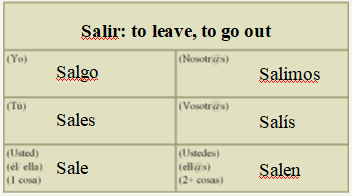
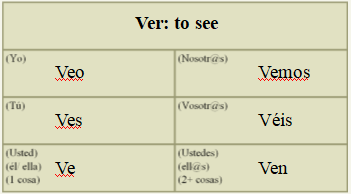
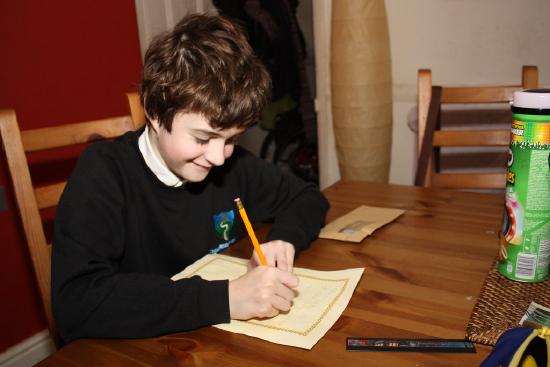
Marcos hace su tarea en casa

Renata y Leti salen los fines de semana

Me gusta comer palomitas cuando veo películas
Hacer is very commonly used in questions like, “What are you doing (right now/ tonight/ tomorrow)?” Unless you answer with something like, “I am doing my homework,” or, “I am making a sandwich,” you will use a different verb to respond, such as I work.
Actividad 18
Hacer. Answer the following questions related to verb hacer. Then, discuss your answers with a classmate. Audio
1. ¿Qué haces esta noche? ________
2. ¿Qué haces mañana? ________
3. ¿Qué haces los fines de semana?________
4. ¿Qué hacen tus padres entre semana (during the week)?
________
5. ¿Qué hacen tus amigos los fines de semana?
________
Actividad 19
Salir y Ver. Answer the following questions using the verbs salir and ver. Then, discuss your answers with a classmate. Audio
1. ¿Sales a bailar los fines de semana? ________
2. ¿Sales entre semana?________
3. ¿Salen mucho tus amigos a los bares?________
4. ¿Ves muchas películas?________
5. Cuando ves una película, ¿la ves en casa o en el cine?________
6. ¿Qué programas de televisión te gusta ver?________
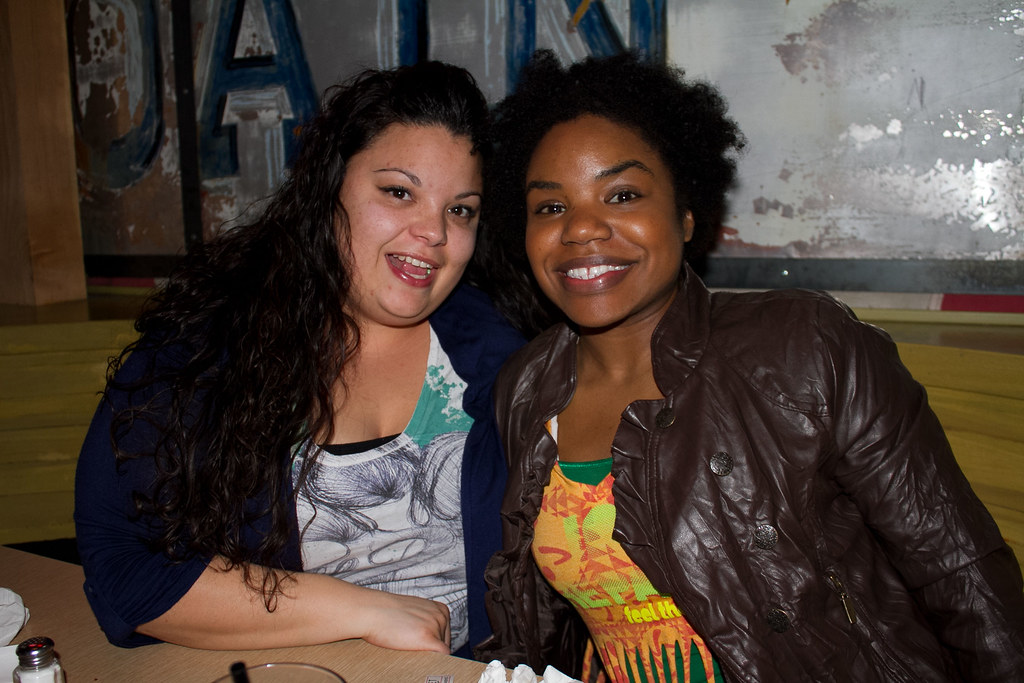
Yasmín y Raquel salen a cenar* (to eat dinner)

A Miguel le gusta ver programas futuristas.


